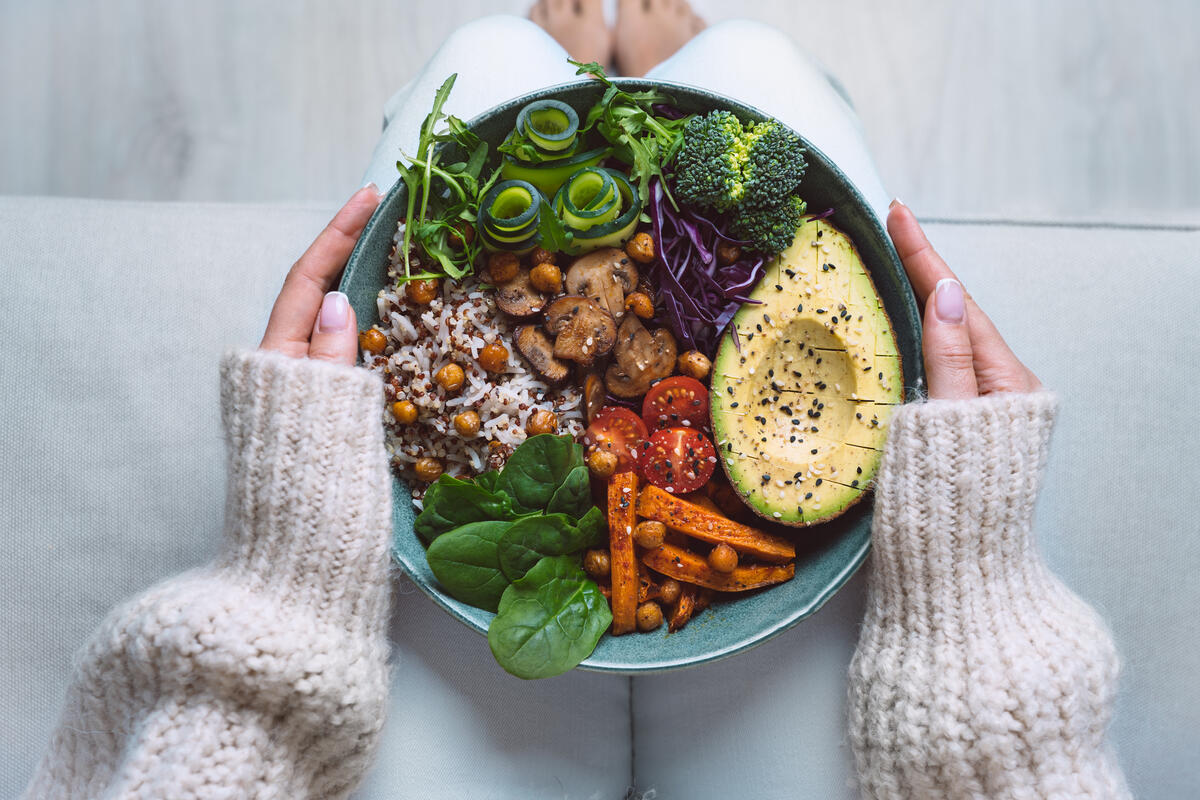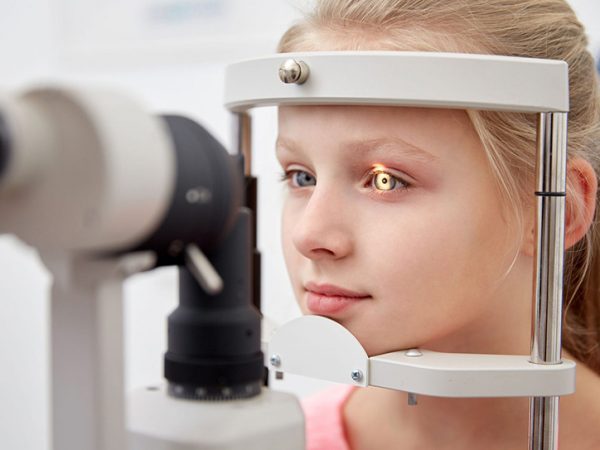
The Role of Nutrition in Eye Health: Foods and Supplements for Better Vision
When it comes to maintaining good vision and overall eye health, what you eat plays a crucial role. The eyes, like every other part of your body, require specific nutrients to function optimally. At eyeXam we believe in a holistic approach to eye care, which includes proper nutrition. In this article, we’ll explore the key nutrients that support eye health, the foods rich in these nutrients, and the role of supplements in maintaining clear and healthy vision.
Understanding the Connection Between Diet and Eye Health
The eyes are highly metabolically active organs, constantly exposed to light and environmental stressors. This makes them particularly vulnerable to oxidative stress, which can lead to damage over time. However, certain nutrients have been shown to protect the eyes from oxidative damage, reduce the risk of age-related eye diseases, and support overall eye function.
A balanced diet rich in vitamins, minerals, and antioxidants can help prevent or delay the onset of various eye conditions, including cataracts, macular degeneration, and dry eyes. Let’s dive into the key nutrients that play a vital role in maintaining eye health.
Essential Nutrients for Eye Health
- Vitamin A
- Vitamin A is perhaps the most well-known nutrient for eye health. It is essential for maintaining the health of the cornea (the clear front surface of the eye) and plays a crucial role in vision by allowing the eyes to adapt to low-light conditions. A deficiency in vitamin A can lead to night blindness and increase the risk of more severe eye conditions.
Best Sources:
- Carrots, sweet potatoes, spinach, kale, and other leafy green vegetables are rich in beta-carotene, which the body converts into vitamin A. Animal sources like liver, eggs, and dairy products also provide direct vitamin A.
- Lutein and Zeaxanthin
- Lutein and zeaxanthin are powerful antioxidants found in high concentrations in the macula, the part of the retina responsible for central vision. These nutrients help filter harmful blue light and protect the eyes from oxidative stress. Studies suggest that a diet rich in lutein and zeaxanthin can reduce the risk of age-related macular degeneration (AMD) and cataracts.
Best Sources:
- Leafy greens such as kale, spinach, and collard greens are excellent sources of lutein and zeaxanthin. Other good sources include broccoli, peas, corn, and eggs.
- Vitamin C
- Vitamin C is a potent antioxidant that supports the health of blood vessels in the eyes. It helps protect against cataracts and, when combined with other essential nutrients, can slow the progression of age-related macular degeneration.
Best Sources:
- Citrus fruits like oranges, grapefruits, and lemons are well-known sources of vitamin C. Other fruits and vegetables rich in vitamin C include strawberries, bell peppers, broccoli, and kiwi.
- Vitamin E
- Vitamin E is another antioxidant that plays a significant role in protecting the eyes from oxidative damage. It works by neutralizing free radicals that can damage cells in the eyes, potentially reducing the risk of cataracts and macular degeneration.
Best Sources:
- Nuts and seeds, such as almonds, sunflower seeds, and hazelnuts, are rich sources of vitamin E. Green leafy vegetables, avocados, and fortified cereals also provide this essential nutrient.
- Omega-3 Fatty Acids
- Omega-3 fatty acids, particularly DHA (docosahexaenoic acid), are essential for maintaining the structure and function of the retinal cells. They also play a crucial role in reducing inflammation and supporting tear production, which can help prevent dry eyes. Omega-3s have been linked to a lower risk of AMD and may also benefit those with dry eye syndrome.
Best Sources:
- Fatty fish such as salmon, mackerel, sardines, and trout are excellent sources of omega-3 fatty acids. For those who prefer plant-based options, flaxseeds, chia seeds, walnuts, and algal oil are good alternatives.
- Zinc
- Zinc is a mineral that plays a vital role in transporting vitamin A from the liver to the retina, where it is converted into melanin, a protective pigment. Zinc is essential for maintaining the health of the retina and may help slow the progression of AMD.
Best Sources:
- Oysters are one of the best sources of zinc. Other good sources include beef, poultry, beans, nuts, and dairy products.
- B Vitamins
- B vitamins, particularly B6, B12, and folic acid, are important for reducing homocysteine levels in the blood. Elevated homocysteine levels have been associated with an increased risk of AMD. Additionally, vitamin B2 (riboflavin) has been shown to reduce the risk of cataracts.
Best Sources:
- Whole grains, eggs, dairy products, poultry, and leafy green vegetables are good sources of B vitamins. Fortified cereals and supplements can also help ensure adequate intake.
The Role of Supplements in Eye Health
While a balanced diet is the best way to obtain the necessary nutrients for eye health, some individuals may benefit from supplements, especially if they have specific risk factors for eye diseases or dietary restrictions. For example, the Age-Related Eye Disease Study (AREDS) and its follow-up, AREDS2, found that a specific formulation of vitamins and minerals could significantly reduce the risk of advanced AMD in individuals at high risk.
The AREDS2 formula includes:
- Vitamin C (500 mg)
- Vitamin E (400 IU)
- Lutein (10 mg)
- Zeaxanthin (2 mg)
- Zinc (80 mg)
- Copper (2 mg, to prevent copper deficiency caused by zinc)
Before starting any supplement regimen, it’s essential to consult with an optometrist or healthcare provider, as excessive intake of certain vitamins and minerals can have adverse effects.
Tips for Incorporating Eye-Healthy Foods into Your Diet
- Eat a Rainbow of Fruits and Vegetables
- Aim to include a variety of colorful fruits and vegetables in your daily diet. The different colors often indicate the presence of various nutrients that are beneficial for eye health.
- Include Fatty Fish in Your Diet
- Try to incorporate fatty fish into your meals at least twice a week to ensure an adequate intake of omega-3 fatty acids.
- Snack on Nuts and Seeds
- Keep a supply of nuts and seeds on hand for a healthy snack that’s rich in vitamin E and other eye-friendly nutrients.
- Start Your Day with a Green Smoothie
- Blend leafy greens like spinach or kale with fruits such as oranges or berries to create a nutrient-packed smoothie that supports eye health.
- Choose Whole Grains
- Opt for whole grains over refined grains to increase your intake of B vitamins and other essential nutrients.
Maintain Your Eye Health by Visiting eyeXam Newport Beach
Nutrition plays a vital role in maintaining eye health and protecting your vision as you age. By incorporating a diet rich in vitamins, minerals, and antioxidants, you can reduce the risk of developing eye conditions like cataracts, macular degeneration, and dry eyes. At eyeXam in Newport Beach, we are committed to helping you achieve optimal eye health through comprehensive eye care and personalized advice. If you have concerns about your vision or want to learn more about how nutrition can support your eye health, contact us today to schedule an appointment.





